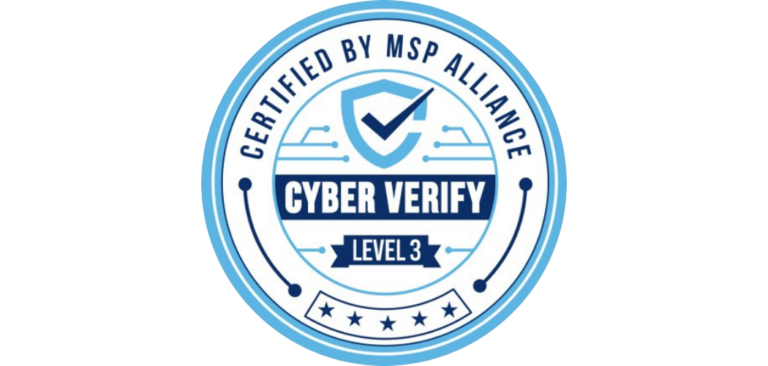In today’s digital world, cybercriminals have become more sophisticated, making their attacks increasingly difficult to spot—even by cautious businesses. Small and medium-sized businesses (SMBs) are often especially vulnerable, as many lack dedicated cybersecurity practices. Focusing on growth, small business owners might assume that their size makes them less likely targets. However, it’s precisely the limited resources and underdeveloped cybersecurity practices that put SMBs at greater risk for breaches, data theft, and other cyber incidents.
Cybersecurity doesn’t have to be costly, and many breaches can be avoided by addressing common mistakes. Here, we’ll cover the ten biggest cybersecurity mistakes SMBs make and provide insights on how to prevent them to keep your company better protected.
Are You Making Any of These Cybersecurity Mistakes?
1. Underestimating the Threat
A common misconception among SMBs is that cybercriminals won’t bother targeting smaller companies. However, attackers often see small businesses as easier targets due to limited security resources. No business is “too small” to be targeted; proactive cybersecurity measures are essential for protecting your business and its data.
2. Neglecting Employee Cyber Training
Employees are both the first line of defense and, unfortunately, the most common source of cybersecurity vulnerabilities. Without proper training, staff can unintentionally fall victim to phishing emails, social engineering tactics, or malicious downloads. Regular training sessions can help employees recognize and react appropriately to potential threats, including:
- Identifying phishing attempts
- Understanding strong password practices
- Avoiding social engineering tactics
3. Using Weak Passwords
Passwords that are easy to remember are often easy to guess. Employees sometimes reuse passwords across accounts, which increases the risk of breaches. To improve password security:
- Encourage complex, unique passwords for each account
- Use password management software to securely store passwords
4. Not Updating Your Software
Outdated software leaves your systems vulnerable to attacks, as cybercriminals can exploit known weaknesses. Automating software updates and patch management helps ensure that all devices are protected with the latest security updates.
5. Lacking a Data Backup Plan
Data loss can result from cyberattacks, hardware failures, or even human error. Regularly backing up critical data and testing your backups ensures your business can recover from unexpected incidents and minimizes downtime.
6. No Formal Security Policies
Security policies establish clear expectations for handling sensitive information. Without a defined framework, employees may not know how to securely use devices, handle data, or respond to incidents. Small businesses should develop formal policies covering:
- Password management
- Data handling
- Incident reporting
- Remote work security
7. Ignoring Mobile Security
With remote work and Bring Your Own Device (BYOD) policies becoming more common, mobile security is increasingly important. Implementing a mobile device management (MDM) solution can help enforce security policies on both company-owned and personal devices used for work.
8. Failing to Regularly Monitor Networks
Many SMBs lack dedicated IT staff to monitor their networks, making it difficult to detect unusual activity. Network monitoring tools, or outsourced monitoring services, can help identify potential threats in real-time, reducing the chance of a prolonged breach.
9. No Incident Response Plan (IRP)
An incident response plan (IRP) outlines the steps to take in the event of a cybersecurity breach, helping to avoid panic and delays that can make an attack worse. Developing a clear IRP with defined roles, responsibilities, and communication plans can make all the difference when responding to an incident.
10. Thinking They Don’t Need Managed IT Services
Some small businesses believe they can manage cybersecurity on their own. However, cyber threats are constantly evolving, and staying ahead requires expertise, tools, and proactive strategies. Managed IT Services provide SMBs with expert support, from regular monitoring and data backups to incident response, allowing your team to stay focused on core business activities.
Learn More About Managed IT Services
Don’t risk your data or business operations due to a preventable cyberattack. Managed IT Services are often more affordable than you might think and provide peace of mind for small businesses looking to strengthen their security.
Interested in learning more?
Contact Open Approach today to schedule a consultation and see how we can support your business with reliable, scalable cybersecurity solutions.



